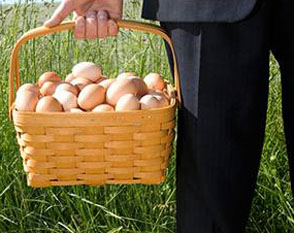Philosophy
 Our foremost goal is to protect and grow the value of your investment… and to do so with minimal month over month loss of investment value. This is called an Absolute Return investment goal. It is distinguished from traditional investment performance goals in that it does not define success or failure based upon relative performance versus a reference benchmark such as a particular security or market index. Positive relative returns can still mean big losses in a bear market. Losing 15% when the S&P declines 25% will not help meet your retirement goals. Today’s challenging markets require a flexible and responsive strategy that adapts to changing market conditions… one that can recognize when to increase exposure when markets are favorable and when to step aside when conditions have become unfavorable.
Our foremost goal is to protect and grow the value of your investment… and to do so with minimal month over month loss of investment value. This is called an Absolute Return investment goal. It is distinguished from traditional investment performance goals in that it does not define success or failure based upon relative performance versus a reference benchmark such as a particular security or market index. Positive relative returns can still mean big losses in a bear market. Losing 15% when the S&P declines 25% will not help meet your retirement goals. Today’s challenging markets require a flexible and responsive strategy that adapts to changing market conditions… one that can recognize when to increase exposure when markets are favorable and when to step aside when conditions have become unfavorable.
Risk is the chance of permanent loss of value.
The biggest risk is being on the wrong side of a trend, then spending years trying to get even. The best measurement of risk is the extent and duration of “drawdown”, which is the difference between the last high value of your investment account and its current value.
Effective risk management isn’t likely achieved solely through diversification among assets that seem to have uncorrelated price movements. Correlations of investment returns for stocks, bonds, commodities, etc. vary greatly over time and can change quickly. This is particularly true during major market corrections, just when you might be relying on diversification to mitigate your losses.
Perhaps this is why the overwhelming majority of investment managers under-perform their selected index benchmarks, and why those who do out-perform seldom do so consistently.
Risk management via diversification is an underlying principal of “modern” portfolio theory (1952). Many of its assumptions have suffered theoretical and empirical challenges since its introduction. We’ve all heard “don’t put all your eggs in one basket”. This is only good advice if you assume that several of the baskets won’t lose their eggs at the same time, and that there is no way to know when to change baskets…both spurious assumptions

